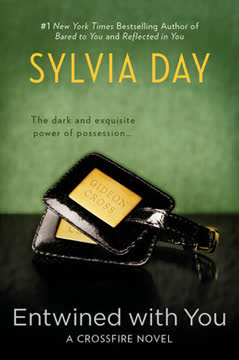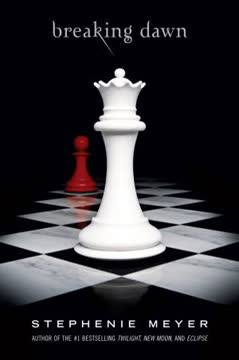Plot Summary
Waiting in the Shadows
Christian Grey sits in his car, nerves frayed, waiting outside Ana's workplace. The week apart has left him raw, desperate, and riddled with self-doubt. He obsesses over every detail—her absence, her emails, her new job, and the possibility that she's moved on. The anticipation is suffocating, and his need for control clashes with the vulnerability Ana inspires in him. When she finally appears, thinner and paler, Christian's guilt and longing surge. Their reunion is awkward, charged with unresolved pain and hope. Christian's internal monologue reveals a man both powerful and powerless, desperate to reclaim the woman who has upended his carefully ordered world.
Reunion and Regret
Christian and Ana's first moments together are tense, marked by concern for her well-being and his own fear of rejection. He's haunted by the memory of their breakup, blaming himself for pushing her too far. Their conversation is halting, but the physical connection between them is undeniable. Christian's need to protect and possess Ana wars with his desire to do things her way. As they travel together, the old patterns of dominance and resistance reemerge, but so does a tentative willingness to try again. Both are wounded, but the spark of hope is rekindled as they agree to talk, setting the stage for a new beginning.
Gallery of Jealousies
At José's art show, Christian's jealousy flares as he confronts Ana's past and the men who orbit her. The sight of Ana's portraits—intimate, vulnerable, and beautiful—unsettles him, prompting him to buy them all in a possessive gesture. The evening is a minefield of emotions: Christian's envy, Ana's independence, and the lingering threat of other men. Their public arguments reveal the deep-seated issues between them, but also their mutual attraction. The night ends with a passionate, desperate kiss in an alley, blurring the line between anger and desire, and reminding them both of what they stand to lose.
Negotiating New Boundaries
Over dinner, Christian and Ana confront the terms of their relationship. Ana demands honesty and respect, refusing to be controlled or diminished. Christian, shaken by the possibility of losing her, offers to try a "vanilla" relationship—no rules, no punishments, just love. The conversation is raw, exposing their fears and needs. Christian admits his dependence on Ana, while she confesses her pain at their separation. They agree to start anew, with Christian relinquishing some control and Ana promising to communicate. The negotiation is fraught but hopeful, marking a turning point in their journey toward mutual trust.
Temptation and Trust
As Christian and Ana navigate their renewed intimacy, the tension between dominance and vulnerability persists. Christian struggles to balance his protective instincts with Ana's desire for autonomy. Their sexual encounters become a battleground for trust, communication, and self-discovery. Ana pushes Christian to let her in, both physically and emotionally, while he grapples with the scars of his past. The introduction of gifts, boundaries, and playful challenges deepens their bond, but also exposes lingering insecurities. Each encounter is a test—of love, of limits, and of their willingness to change for each other.
Confessions and Complications
The reappearance of Leila, Christian's troubled ex-submissive, shatters the fragile peace. Ana is confronted by the reality of Christian's past, while Christian is forced to confront the consequences of his actions. Leila's instability and obsession pose a real danger, prompting Christian to tighten security and reveal more of his history to Ana. The couple's relationship is tested by jealousy, fear, and the intrusion of old wounds. Christian's struggle to protect Ana without suffocating her becomes a central conflict, as does Ana's determination to assert her independence. The specter of Leila forces both to reckon with the shadows that haunt them.
Haunted by the Past
Christian's nightmares and memories of abuse resurface, triggered by the chaos around him. He reveals to Ana the depth of his pain—the neglect, the violence, the loss of his birth mother. Ana's compassion becomes his anchor, but the darkness within him remains a constant threat. Their conversations grow more intimate, as Ana seeks to understand the roots of Christian's need for control and his aversion to touch. The couple's emotional honesty deepens their connection, but also exposes the fragility of their happiness. Christian's journey toward healing is slow and painful, but Ana's presence offers hope.
The Return of Leila
Leila's escalating behavior culminates in a tense confrontation, with Ana caught in the crossfire. Christian's ability to manage the crisis—calmly, authoritatively, and with compassion—reveals both his strength and his vulnerability. The incident forces Christian to confront the consequences of his past relationships and the impact they have on his present. Ana witnesses a side of Christian she has never seen before: the Dominant, the caretaker, the man haunted by guilt. The aftermath leaves both shaken, but also more aware of the depth of their feelings for each other. The threat of loss brings clarity, and the need for trust becomes paramount.
Shifting Power, Shifting Love
In the wake of Leila's departure, Christian and Ana renegotiate the terms of their relationship once more. Christian's willingness to let Ana touch him, to be vulnerable, marks a significant shift in their dynamic. Ana's insistence on honesty and equality challenges Christian to confront his fears and relinquish some control. The couple's love deepens as they learn to balance power and surrender, dominance and submission, independence and intimacy. The process is messy and imperfect, but their commitment to each other grows stronger. Together, they begin to envision a future built on mutual respect and understanding.
The Proposal Unveiled
Christian, overwhelmed by the possibility of losing Ana, proposes marriage in a moment of desperation. Ana, caught off guard, asks for time to consider. The proposal becomes a symbol of their struggle to reconcile love and fear, hope and doubt. Christian's vulnerability is laid bare, as is Ana's need for reassurance. The question of marriage forces both to confront what they truly want from each other and from themselves. The answer, when it comes, is hard-won—a testament to their growth and their willingness to risk everything for love.
Crashing Into Clarity
A helicopter crash brings Christian's mortality—and the depth of Ana's love—into sharp focus. The ordeal unites their families, exposes old wounds, and prompts long-overdue conversations. Christian's survival is a catalyst for change, prompting him to reevaluate his priorities and his relationships. The near-death experience strips away pretense, leaving only what matters: love, forgiveness, and the promise of a future together. The crash is both literal and metaphorical, forcing Christian and Ana to confront the fragility of life and the strength of their bond.
Hearts and Flowers
With the past laid to rest, Christian and Ana celebrate their engagement in a boathouse filled with flowers and light. The proposal is remade—romantic, heartfelt, and sincere. Surrounded by family and friends, they declare their love and commitment, choosing each other despite the scars and shadows that linger. The journey has been tumultuous, marked by pain and passion, but the promise of a shared future offers hope. Together, they step into the light, ready to build a life founded on trust, respect, and enduring love.
Family Reckonings
The engagement celebration brings unresolved tensions to the surface. Christian's mother learns the truth about his relationship with Elena, leading to anger, grief, and ultimately, understanding. The confrontation with Elena is cathartic, severing the last ties to Christian's past. Family dynamics shift as secrets are exposed and forgiveness is sought. Ana's integration into Christian's world is complete, but not without cost. The process of letting go—of guilt, of shame, of old loyalties—frees Christian to embrace the future with Ana by his side.
Letting Go of Ghosts
Christian takes concrete steps to leave his past behind: destroying old photographs, ending toxic relationships, and making amends with those he has hurt. Ana's unwavering support and love give him the strength to move forward. The couple's journey is marked by small acts of courage and kindness, as they learn to trust themselves and each other. The ghosts that once haunted Christian lose their power, replaced by the promise of a new life. Together, they create rituals of healing—shared meals, laughter, and moments of quiet intimacy—that anchor them in the present.
The Boathouse Promise
In a boathouse adorned with wildflowers, Christian and Ana exchange promises of love and fidelity. The setting is symbolic—a place of transformation, beauty, and hope. Christian's proposal is heartfelt, his vulnerability on full display. Ana's acceptance is joyful, her faith in their love unwavering. The moment is a culmination of their journey, a testament to their resilience and their willingness to choose each other, again and again. Surrounded by light and possibility, they step into a future of their own making.
Into the Light Together
Christian and Ana's story ends with a sense of peace and fulfillment. The darkness that once defined Christian is dispelled by Ana's love, and together they build a life rooted in trust, respect, and mutual devotion. The journey has been fraught with challenges—jealousy, fear, trauma, and loss—but their commitment to each other endures. The final image is one of hope: two flawed, passionate people choosing to walk into the light, hand in hand, ready to face whatever comes next.
Characters
Christian Grey
Christian Grey is a man shaped by trauma, privilege, and an insatiable need for control. His childhood was marked by neglect and abuse, leaving him with deep psychological scars and a profound aversion to touch. As an adult, he channels his pain into dominance, seeking order in a chaotic world. Ana's arrival disrupts his carefully constructed defenses, forcing him to confront his vulnerability and capacity for love. Throughout the story, Christian oscillates between fear and hope, dominance and surrender. His journey is one of self-discovery, as he learns to trust, to let go, and to accept love. Ana becomes his anchor, guiding him from darkness into light. His relationships—with Ana, his family, and his past—are complex, marked by guilt, longing, and a desperate need for redemption. By the end, Christian is transformed: still flawed, still struggling, but open to the possibility of happiness.
Anastasia Steele
Ana is the catalyst for Christian's transformation—a woman whose strength lies in her empathy, resilience, and quiet determination. Initially inexperienced and uncertain, she quickly asserts her independence, challenging Christian's need for control and demanding respect. Ana's compassion is her greatest asset, allowing her to see beyond Christian's defenses and love him for who he is, not who he pretends to be. Her journey is one of self-assertion, as she learns to set boundaries, communicate her needs, and fight for the relationship she wants. Ana's willingness to confront difficult truths, both about herself and Christian, is a testament to her courage. Her love is not blind; it is hard-won, rooted in understanding and acceptance. By the end, Ana is no longer the ingénue—she is Christian's equal, his partner, and the light that guides him home.
Leila Williams
Leila is the embodiment of Christian's past—a former submissive whose descent into instability threatens the fragile peace he has found with Ana. Her obsession with Christian is both a cry for help and a manifestation of the damage wrought by their relationship. Leila's presence forces Christian to confront the consequences of his actions and the limits of his control. She is both victim and threat, a reminder of the darkness that lingers at the edges of Christian's world. Her eventual surrender and acceptance of help mark a turning point, allowing Christian to let go of guilt and focus on healing.
Elena Lincoln
Elena, Christian's former lover and mentor, represents the seductive allure of control and the dangers of unresolved trauma. Her relationship with Christian is complex—part friend, part abuser, part confidante. Elena's attempts to interfere in Christian and Ana's relationship are driven by jealousy, possessiveness, and a refusal to let go. Her eventual confrontation with Christian's mother and banishment from their lives is cathartic, severing the last ties to Christian's past and allowing him to move forward. Elena is both a cautionary figure and a catalyst for change.
Grace Trevelyan-Grey
Christian's adoptive mother, Grace, is a source of unconditional love and support. Her discovery of Christian's past with Elena is devastating, prompting anger, grief, and a fierce desire to protect her son. Grace's confrontation with Elena is a pivotal moment, forcing Christian to reckon with the impact of his choices on those he loves. Her forgiveness and acceptance are instrumental in Christian's healing, offering a model of compassion and resilience.
Carrick Grey
Christian's adoptive father, Carrick, is a stabilizing presence—a man of integrity and quiet strength. His relationship with Christian is marked by mutual respect and occasional tension, particularly regarding Christian's choices. Carrick's support during the crisis of the helicopter crash and his acceptance of Ana into the family are crucial, reinforcing the importance of family and forgiveness.
Mia Grey
Christian's younger sister, Mia, is a force of nature—energetic, outspoken, and fiercely loyal. Her enthusiasm for Christian and Ana's relationship is both endearing and overwhelming. Mia's role as party planner and confidante adds levity and warmth to the story, while her unwavering support helps bridge the gap between Christian and the rest of his family.
Elliot Grey
Christian's older brother, Elliot, provides a counterpoint to Christian's intensity. Easygoing and affable, Elliot is quick to tease but deeply protective of his family. His relationship with Ana's friend Kate mirrors Christian and Ana's, offering a glimpse of a more conventional romance. Elliot's presence is a reminder of the importance of laughter, loyalty, and second chances.
Katherine Kavanagh
Ana's best friend, Kate, is a journalist by nature and by temperament—always probing, always questioning. Her discovery of Christian and Ana's contract prompts concern and confrontation, but her loyalty to Ana is unwavering. Kate's skepticism and protectiveness serve as a foil to Ana's optimism, challenging both Ana and Christian to be honest about their intentions.
Dr. John Flynn
Christian's therapist, Dr. Flynn, is a voice of reason and compassion. His role is to help Christian navigate the complexities of love, trauma, and self-acceptance. Flynn's guidance is instrumental in Christian's transformation, offering both practical advice and emotional support. His sessions with Christian and Ana provide a safe space for honesty, vulnerability, and growth.
Plot Devices
Dual Perspective and Internal Monologue
The narrative is told from Christian's perspective, offering a window into his thoughts, fears, and desires. This device allows readers to experience the story's emotional intensity firsthand, highlighting the contrast between Christian's outward control and inner turmoil. The use of internal monologue deepens the psychological complexity of the characters, making their struggles and triumphs more immediate and relatable.
Symbolism of Light and Darkness
Throughout the story, light and darkness serve as metaphors for Christian's emotional state. Ana is repeatedly described as bringing light into Christian's life, dispelling the shadows of his past. The motif of moving from darkness into light underscores the themes of healing, redemption, and the transformative power of love. The boathouse, the new house, and the recurring imagery of dawn and dusk reinforce this symbolism.
Foreshadowing and Repetition
The narrative employs foreshadowing to build tension—Leila's reappearance, the helicopter crash, and the threat of loss are all hinted at before they occur. Repetition of key phrases ("Don't leave me," "You're mine," "Say yes") emphasizes the cyclical nature of Christian and Ana's struggles, as well as their determination to break free from destructive patterns.
The Contract and Negotiation
The recurring motif of contracts—both literal and metaphorical—serves as a framework for exploring issues of power, consent, and autonomy. The negotiation of boundaries, rules, and expectations is central to the couple's relationship, reflecting broader questions about love, trust, and self-determination. The eventual rejection of the contract in favor of mutual respect marks a significant evolution in their dynamic.
The Past as Prologue
Christian's history of abuse, neglect, and unconventional relationships is not merely backstory—it actively shapes his actions, fears, and desires. The intrusion of past lovers, the resurfacing of old wounds, and the struggle to let go of guilt are all plot devices that drive the narrative forward. The process of confronting and integrating the past is essential to the couple's ability to build a future together.
The Proposal and the Boathouse
The proposal scene in the boathouse, surrounded by flowers and light, serves as the story's emotional and narrative climax. It is the culmination of Christian and Ana's journey—a moment of vulnerability, hope, and commitment. The setting is symbolic, representing transformation, beauty, and the promise of a new beginning.
Analysis
"Darker" reimagines the familiar Fifty Shades narrative through Christian Grey's eyes, transforming a story of erotic obsession into a nuanced exploration of trauma, healing, and the redemptive power of love. By centering Christian's internal struggles, the novel invites readers to empathize with a man whose need for control masks profound vulnerability. The story's emotional arc is one of descent and ascent: from the depths of self-loathing and fear to the heights of hope and connection. The relationship between Christian and Ana is both a battleground and a sanctuary—a space where old wounds are exposed and new possibilities are forged. The novel's central lesson is that love is not a panacea, but a process: it requires honesty, courage, and the willingness to confront one's own darkness. Through Ana's compassion and Christian's willingness to change, the story affirms the possibility of transformation—not by erasing the past, but by integrating it into a future built on trust, respect, and mutual devotion. In a modern context, "Darker" challenges readers to reconsider the boundaries of intimacy, the meaning of consent, and the capacity for forgiveness. Ultimately, it is a story about choosing light over darkness, again and again, in the face of fear.
Last updated:
Review Summary
Darker received mixed reviews from readers. Many fans of the series enjoyed getting Christian's perspective and appreciated the additional details about his past and relationships. However, some felt it was repetitive and added little new content. Critics disliked the writing style and perceived problematic elements. The book's explicit content and portrayal of the central relationship remained divisive. Despite criticisms, many readers found it an entertaining continuation of the popular series, particularly enjoying Christian's inner thoughts and character development.


















